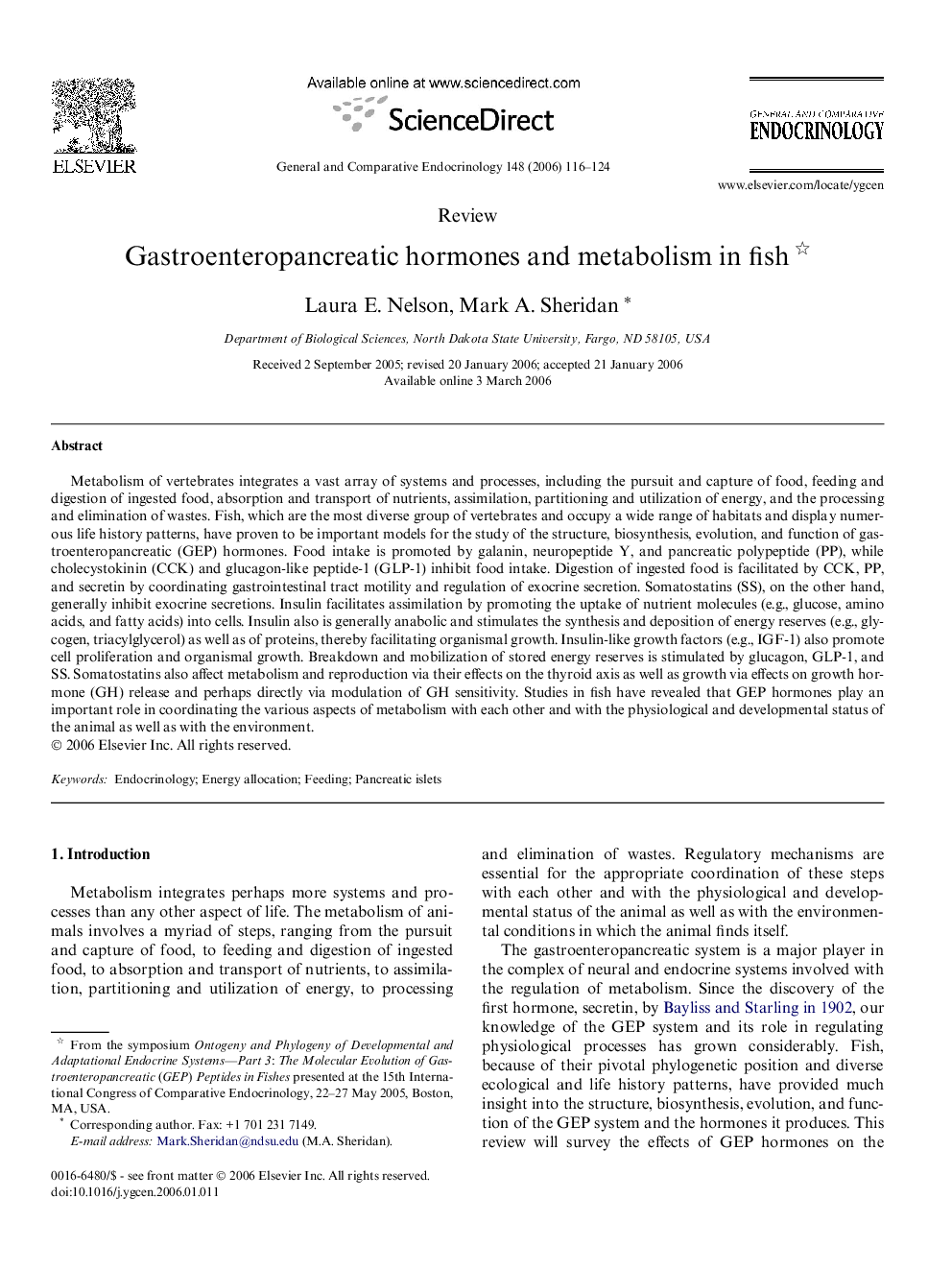| کد مقاله | کد نشریه | سال انتشار | مقاله انگلیسی | نسخه تمام متن |
|---|---|---|---|---|
| 2802401 | 1156202 | 2006 | 9 صفحه PDF | دانلود رایگان |

Metabolism of vertebrates integrates a vast array of systems and processes, including the pursuit and capture of food, feeding and digestion of ingested food, absorption and transport of nutrients, assimilation, partitioning and utilization of energy, and the processing and elimination of wastes. Fish, which are the most diverse group of vertebrates and occupy a wide range of habitats and display numerous life history patterns, have proven to be important models for the study of the structure, biosynthesis, evolution, and function of gastroenteropancreatic (GEP) hormones. Food intake is promoted by galanin, neuropeptide Y, and pancreatic polypeptide (PP), while cholecystokinin (CCK) and glucagon-like peptide-1 (GLP-1) inhibit food intake. Digestion of ingested food is facilitated by CCK, PP, and secretin by coordinating gastrointestinal tract motility and regulation of exocrine secretion. Somatostatins (SS), on the other hand, generally inhibit exocrine secretions. Insulin facilitates assimilation by promoting the uptake of nutrient molecules (e.g., glucose, amino acids, and fatty acids) into cells. Insulin also is generally anabolic and stimulates the synthesis and deposition of energy reserves (e.g., glycogen, triacylglycerol) as well as of proteins, thereby facilitating organismal growth. Insulin-like growth factors (e.g., IGF-1) also promote cell proliferation and organismal growth. Breakdown and mobilization of stored energy reserves is stimulated by glucagon, GLP-1, and SS. Somatostatins also affect metabolism and reproduction via their effects on the thyroid axis as well as growth via effects on growth hormone (GH) release and perhaps directly via modulation of GH sensitivity. Studies in fish have revealed that GEP hormones play an important role in coordinating the various aspects of metabolism with each other and with the physiological and developmental status of the animal as well as with the environment.
Journal: General and Comparative Endocrinology - Volume 148, Issue 2, 1 September 2006, Pages 116–124